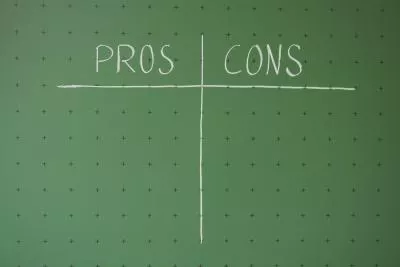Being a student requires you to concentrate on your writing skills, and it’s critical to comprehend the many forms of academic writing, mainly if you attend a university. We will include examples of each of the four types of Academic Writing in this post.
There are four main academic writing types: descriptive writing, Analytical writing, Persuasive writing, and Critical writing. Keep reading to learn more about these four types of academic writing.
Academic writing is a skill that any student who wishes to succeed in their studies must master. They learn to think critically via writing of this nature. Furthermore, it conveys all key ideas correctly while covering all the pertinent topics. Many assignments, papers, essays, and other terms describe academic writing. Because of this, students pay for essay writing. However, they are all intended to make the subject of your writing respectable. Your opinions may conflict with those of your instructor or the author of the material you are reading, or they may be compatible with them.
See Also: Best Laptops For QuickBooks | Top 6 Laptops Of 2024
Contents
- 1 The 4 Academic Writing Styles Every Student Must Master
- 2 FAQs
- 2.1 What serves as academic writing's primary objective?
- 2.2 Who are the writers of academic content?
- 2.3 Which abilities are necessary for writing?
- 2.4 What tone should academic writing have?
- 2.5 What defines academic writing's 'flow'?
- 2.6 What constitutes academic writing accuracy?
- 2.7 What makes academic writing difficult?
- 2.8 Does academic writing follow any rules?
- 2.9 What do writing talents seek to accomplish?
- 3 Conclusion
The 4 Academic Writing Styles Every Student Must Master
There are many different sorts of academic writing, each with unique requirements, characteristics, and objectives. Nevertheless, the four primary types of Academic Writing styles that every student may require are shown in this section.
Chromebook hacks for students can significantly enhance the efficiency of tasks related to academic writing, providing a digital edge to their writing process. If you’re looking to optimize your writing experience, consider exploring various writing apps for Chromebook.
Descriptive
Descriptive writing is one type of academic writing that is popular in academia. In this kind of academic writing, you must describe several things, such as people, places, feelings, experiences, events, photos, etc. For instance, when describing your experience using social media platforms, such as Instagram, you might want to include details about managing your privacy settings, like turning off messages.
Providing details or information on the subject or title assigned to you is the goal of descriptive academic writing. For instance, when a teacher asks pupils to explain the significance of a printed image in their own words. Discussing the details in a picture and describing the image is commonly known as picture description.
In addition, the assignment for descriptive writing involves identifying, describing, recording, summarizing, or characterizing someone or something.
Analytical Writing
Analytical writing is another type of academic writing that requires a deeper level of analysis and organization. More than only being descriptive, analytical writing is also creative. Even though this academic writing style is to explain, you have to evaluate and arrange or rearrange the data and facts into categories, groups, portions, types, or relationships.
The best way to complete your analytical homework is to:
- First, prepare and draft an outline. Consider the information and concepts, then choose the best approach to categorize them based on trends, components, similarities, and differences.

- Create accurate tables, charts, graphs, and other visual aids to aid your analysis.

- When contrasting different things, try to identify their pros and cons.

- Create a paper with a clear framework.

- Refrain from developing a thesis statement because you are merely examining data; establish a clear introduction.

Analytical writing aims to demonstrate and evaluate particular facts, opinions, or facets of someone or something. You should also pay attention to the source material; it should be trustworthy and contain pertinent data that will serve as a strong foundation for your work.
See Also: Top 6 Reading Apps For Kids To Make Learning Fun
Persuasive
Persuasive writing is a type of academic writing that aims to convince the reader of a particular viewpoint or argument. Even though analytical writing and persuasive writing share some similarities, they differ significantly. The characteristics of analytical writing are present in persuasive writing, as well as the ability to reorganize the data by introducing your perspective.
In persuasive writing, you persuade the audience that your particular thought or viewpoint on a given subject is correct by arguing for it, making recommendations about it, or interpreting it in a particular way. You can debate, assess, or discuss this writing from a logical point of view to persuade the reader. Research the subjects, read up on related material, and consider several points of view before making any claims.
Writing advice for persuasive:
- Write logical arguments by reading more sources.
- Include credible and compelling justifications and evidence.

- Your justifications must be concise and understandable. Interpret each point in a logical and precise manner.
Critical
Critical writing is the last type of academic writing discussed in this article and includes elements of persuasive writing. All of the features and characteristics of persuasive writing are present in critical writing.
You shouldn’t use a single source to bolster your arguments in critical writing. When employing a single source, the fundamental issue is what happens if your source says one thing. Still, most other writers say something entirely different. Therefore, you must consider multiple points of view when writing critically.
When writing critically, you must assess and scrutinize the data from your sources rather than taking it at face value. Additionally, critical writing analyzes and evaluates data from multiple sources or analyses and analyzes data from multiple sources to develop an argument. So these four types of Academic Writing are the most important ones.
FAQs
What serves as academic writing's primary objective?
The most specific goal of academic writing is to explain a concept or research finding and persuade the audience that your hypothesis or explanation is the right one.
Who are the writers of academic content?
Researchers and teachers utilize academic writing, a formal writing style, in scholarly papers. It focuses on using logical reasoning and arguments supported by facts to help readers grasp a subject.
Which abilities are necessary for writing?
The writing process depends heavily on abilities like organization, research, planning and outlining, editing and revision, and spelling and punctuation. Documenting a method so that others might learn it is an example of writing skills in the workplace.
What tone should academic writing have?
Academic writing has a formal tone, often uses the third person instead of the first, is focused on the research question being examined, and uses careful word choice.
What defines academic writing's 'flow'?
Writing that 'flows' is simple to read from beginning to end. To connect concepts, readers can continue, go back, reread, or put much effort into it. Writers organize the text to understand and follow.
What constitutes academic writing accuracy?
Accuracy is a term used to describe how correctly learners use the language system, including grammar, pronunciation, and vocabulary. Accuracy is frequently contrasted with fluency when discussing a learner's speaking or writing level.
What makes academic writing difficult?
One of the main causes why people find academic writing difficult is a lack of in-depth research. Every academic publication, including essays and dissertations, calls for sufficient research. This is done to allow readers to evaluate the text's arguments and facts satisfyingly.
Does academic writing follow any rules?
The organization of your work will depend on the assignment. However, the IMRaD and three-part essay forms are often employed in academic writing. Such a format is used in even shorter works that are not broken into named sections. Subheadings may be used to split longer texts further.
What do writing talents seek to accomplish?
Your writing skills channel your information and intellect to the point of worth. It communicates the idea that it is crucial for other individuals. You must have strong writing abilities to succeed in speeches and debates. To communicate your views and perspectives to the audience, in addition to facts and numbers.
Conclusion
We hope you liked this article. To perform well in school, you must be aware of academic writing types. Every type of academic writing should be known and mastered by the learner. Remember to adhere to all the rules for good academic writing. Knowing all the different types of academic writing will enable you to create outstanding work. Students can also use Scrivener to manage writing projects such as novels and research papers.

Follow me to stay updated on the latest technology and computer news from around the world. Join me in spreading the love for tech!



